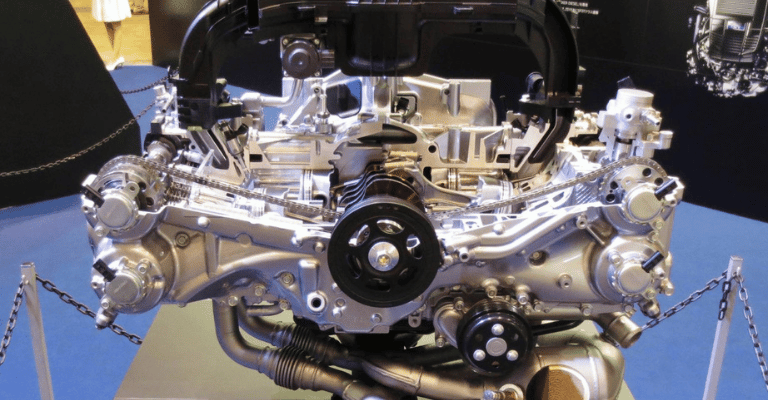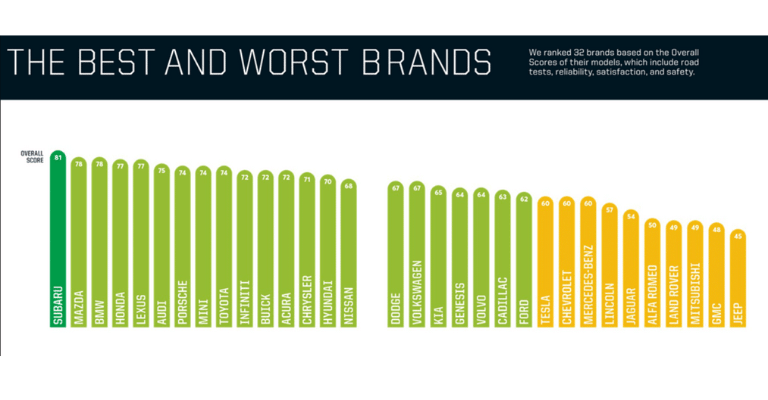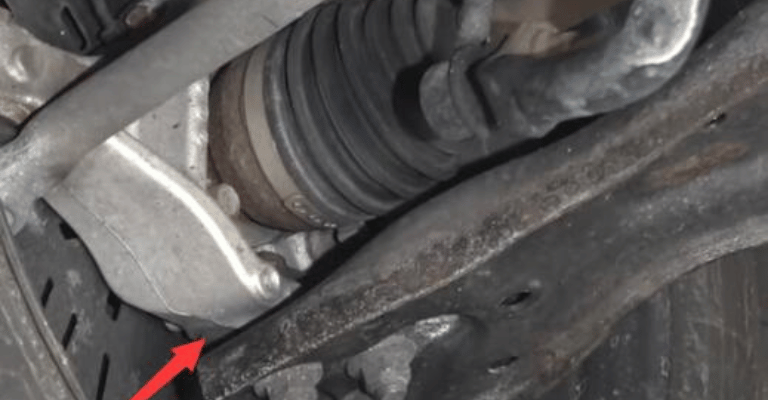Should you be considering the purchase of a Subaru and questioning, “Are Subarus costly to repair?” then this piece is meant for you. In this comprehensive review, we will delve into the complexities of owning a Subaru, covering aspects such as routine maintenance expenses, prevalent issues, product recalls, and typical repair costs.
Subaru vehicles are renowned for their reliability and off-road prowess, primarily due to their symmetrical all-wheel-drive system. However, like any vehicle, Subarus require regular maintenance and occasional repairs. The costs can vary depending on numerous factors, including the specific model, the severity of the issue, and your geographical location. So keep reading to see exactly what I’m talking about!
Are Subarus Expensive To Fix?
Yes, they can be, but it depends on a variety of factors. The model year, parts availability, and local labor costs all play significant roles in the overall repair costs. For instance, older Subaru models may require parts that are less readily available, increasing the cost. Additionally, labor costs can vary dramatically across different regions.
However, it’s worth noting that while Subarus may be more expensive to fix than some domestic brands, they’re still regarded as reasonably reliable vehicles. In fact, according to several consumer reports, Subaru consistently ranks as one of the more reliable brands in the industry.
Related:
– Subaru Starter Replacement Cost: What You Need to Know
– Subaru Clutch Replacement Cost: What You Need to Know
– Subaru Transmission Replacement Cost: What You Need to Know
Are Subarus Expensive To Maintain?
Sometimes, but it depends on if you can do your own work or not. Standard maintenance for a Subaru is comparable to other brands. This includes routine services like oil changes, tire rotations, air filter replacements, and brake inspections.
However, more complex maintenance tasks, such as replacing spark plugs or changing transmission fluid, can be more costly due to the unique design of Subaru’s engines and transmissions. If you’re handy with tools and have some mechanical knowledge, you might be able to perform some of these tasks yourself, saving on labor costs.
General Subaru Maintenance Schedule
Regular maintenance is critical for keeping your Subaru in top shape. Here’s a general overview of the recommended maintenance schedule:
- Oil Change: Approximately every 6,000 miles or 6 months.
- Tire Rotation: Around every 6,000 to 8,000 miles.
- Engine Air Filter Replacement: Every 12,000 to 15,000 miles.
- Cabin Air Filter Replacement: Every 12,000 to 15,000 miles.
- Brake Fluid Change: Typically every 30,000 miles.
- Coolant Flush: Usually at 60,000 miles and then every 30,000 miles thereafter.
- Spark Plug Replacement: Generally around 60,000 miles for turbo models and 100,000 miles for non-turbo models.
- Timing Belt Replacement: Typically at 105,000 miles or when the vehicle is 105 months old, whichever comes first.
Remember, this is just a general guide. Always consult your vehicle’s owner’s manual for the most accurate information.
Related article: What Do These Subaru Dashboard Lights Mean?
Here’s an official subaru maintenance schedule, provided by Subaru.ca:
What Are Common Problems Found In Subarus?
Like any vehicle brand, Subaru has a few common problems that owners may encounter. Some of these include:
- Head Gasket Failure: This is perhaps one of the most well-known issues with some older Subaru models. A blown head gasket can lead to coolant leaks and overheating problems.
- Oil Consumption Issues: Some Subaru models, especially those with the FB-series engine, have been reported to consume oil excessively.
- CVT Issues: Problems with the Continuously Variable Transmission (CVT) have been reported in some Subaru models, leading to jerky operation or failure.
- Wheel Bearing Failure: Some owners have reported premature wheel bearing failure, resulting in noisy operation and potentially leading to more serious issues if not addressed.
Related article: Subaru WRX Problems
Why Do These Problems Occur?
Most of these issues can be traced back to specific design decisions made by Subaru. For instance, the head gasket problem is often attributed to the horizontally opposed design of Subaru’s engines. This layout places the head gaskets on the sides of the engine, where they’re more likely to be exposed to harsh temperature changes.

Similarly, oil consumption issues are often linked to Subaru’s switch to thinner, lower-viscosity oils, which can lead to increased consumption, especially in vehicles with higher mileage.
The CVT issues can be traced back to the inherent complexity of these transmissions. While they offer benefits in terms of fuel efficiency and smooth operation, CVTs can be expensive to repair or replace if they fail.
Another common problem: Subaru Battery Problems: Causes, Solutions, & Prevention
When Do They Need To Be Fix Professionally?
Most of the common problems mentioned above require professional attention due to their complexity. Issues like head gasket failure, oil consumption, and CVT problems should be handled by a skilled mechanic or a Subaru dealer.
However, some maintenance tasks, like oil changes, air filter replacements, and tire rotations, can be done at home by owners with the necessary skills and tools.
Related: Subaru Impreza Years to Avoid
Has Subaru Reliability Increased Over Time?
Yes, Subaru’s reliability has generally improved over time. The brand has made several design changes and improvements to address the common issues mentioned above. For instance, Subaru has made modifications to its engines and head gaskets to reduce the likelihood of failure.
That said, like any vehicle, Subarus are not immune to problems, particularly as they age and accumulate more miles. Regular maintenance remains key to ensuring your Subaru continues to function reliably.
Read next: Are Subaru WRX Reliable? Yes and No (Here’s Why)

Are Any Of The Recall Based?
Yes, Subaru has issued several recalls over the years to address various problems. For instance, Subaru has conducted recalls to deal with issues like excessive oil consumption, defective airbags (part of the larger Takata airbag recall), and issues with the CVT.
When a recall is issued, owners are usually notified by Subaru and repairs are made at no cost to the owner. If you’re considering buying a used Subaru, it’s a good idea to check if all recall-related repairs have been completed.
Average Cost To Repair A Subaru
The average cost to repair a Subaru can vary widely depending on the nature of the problem, the specific model, and your location. However, on average, Subaru owners can expect to spend around $617 per year on repairs and maintenance, according to RepairPal. This is slightly above the industry average for similar vehicles.
How Does The Forester Fare?
> Best Years for Subaru Forester
> Forester Years to Avoid
> Subaru Forester Problems: Too Much To Handle?
Some common repairs and their average costs include:
- Head Gasket Replacement: $1,000 to $2,000
- Oil Change: $60 to $70
- Wheel Bearing Replacement: $250 to $350 per wheel
- Air Filter Replacement: $50 to $60
- Spark Plug Replacement: $200 to $300
- CV Joints: $200 to $500
Remember, these are just averages. The actual cost can be higher or lower depending on various factors.

Average Cost For Subaru Maintenance
As for maintenance, the costs can again vary. On average, you can expect to spend between $500 and $700 per year on routine maintenance tasks like oil changes, tire rotations, and air filter replacements.
More major maintenance tasks, like brake fluid changes or spark plug replacements, will add to this cost. For instance, a brake fluid change can cost around $100 to $150, while replacing the spark plugs can cost between $200 to $300.
How To Know If A Subaru Is Right For You
Subarus are popular for their all-wheel-drive capability, reliability, and strong resale value. They’re excellent vehicles for anyone needing a dependable car that can handle all kinds of weather and road conditions.
However, like any vehicle, they come with their own set of potential issues and costs. If you’re considering a Subaru, weigh the potential repair and maintenance costs against the benefits. If you’re comfortable with the possible expenses and value the brand’s strengths, a Subaru could be a great choice for you.
Related articles:
> Best Year Subaru Legacy
> Subaru Legacy Problems
> Subaru Legacy Years to Avoid
> Subaru Outback Years to Avoid
Community Feedback
Many Subaru owners share their experiences and advice on platforms like Reddit. In a thread titled “Did you regret buying a Subaru due to the cost of repair?”, responses varied. Some owners reported high repair costs, while others said their Subarus were no more expensive to maintain than other vehicles they’d owned.
One user, No-Lynx644, posited the question after hearing that Subarus were costly to fix. The responses generally agreed that while repair costs could be high, the reliability, performance, and enjoyment of driving a Subaru outweighed the potential expenses.
Owning a Subaru can indeed be more costly in terms of repair and maintenance compared to some other brands. However, many owners find the costs justifiable considering the brand’s reputation for reliability, safety, and all-weather capability.
FAQs and Related Questions
Does Subaru offer a maintenance plan?
Yes, Subaru offers a prepaid maintenance plan that covers routine services like oil changes and tire rotations.
What is the most reliable Subaru model?
According to Consumer Reports, the Subaru Forester has consistently been rated as one of the most reliable Subaru models in recent years.
What is the life expectancy of a Subaru?
With proper maintenance, many Subarus can last well over 200,000 miles.
What is the warranty on a Subaru?
Subaru offers a 3-year/36,000-mile new vehicle limited warranty and a 5-year/60,000-mile powertrain limited warranty.
Are Subarus good cars?
Yes, Subarus are often praised for their safety, reliability, and all-weather driving capabilities. However, like any vehicle, they can have their issues and may require costly repairs or maintenance.
To wrap things up, while Subarus may have slightly higher repair and maintenance costs than some other brands, many owners find these costs to be a fair trade-off for the brand’s numerous benefits. As always, regular maintenance is the key to keeping any vehicle, including Subarus, running smoothly for years to come.